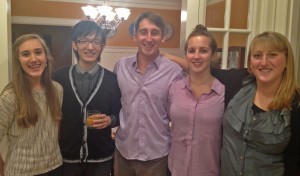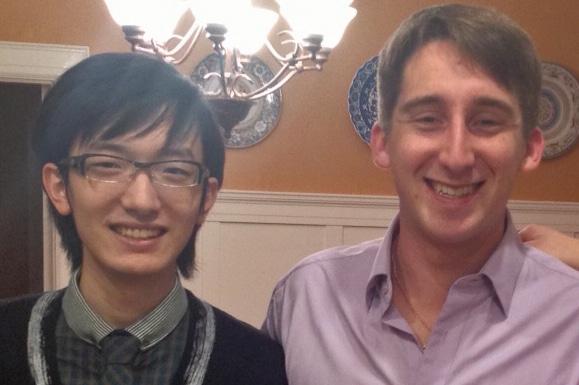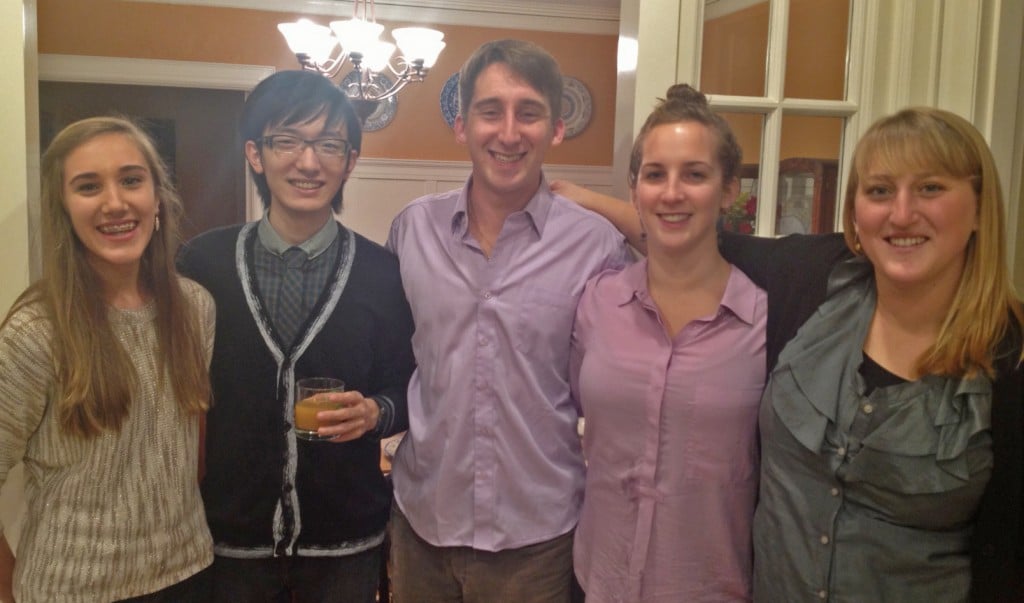This Thanksgiving, I visited my parents in Seattle. Last summer, they relocated to the rainy Northwest after 10 years in sunny Honolulu, so I came home to a house I never knew. But inside were three generations of my extended family, which brought me warmth unmatched by any L.L. Bean moccasin or Starbucks latte.
Seattle is also home to the University of Washington, where I sent two of my students when I was a college counselor in Nanjing. One of them, Basil, had no plans for Thanksgiving dinner, so I invited him to join my family’s feast along with a dozen family members plus my sister’s friend Heather (my mom declared that all non-relatives must have herb-related names). Basil was thrilled to accept. It would be his first Thanksgiving, and I felt warm and fuzzy for the honor of showcasing some of America’s proudest traditions, all slathered in piping hot gravy.
Shortly before dinner, I greeted Basil at the bus stop and proceeded to give him a rundown on what to expect, “Don’t hesitate to ask if you don’t understand something. No need to be polite. And if you don’t like how something tastes, you don’t have to eat it!”
Once inside, I realized at last how my universe was on its head: after myriad such conversations about the five-thousand-year-old traditions of the Middle Kingdom, I was lecturing my Chinese student on first downs and quarterbacks, the significance of apple pie, and how to address different family members. Taking a step back from my excessive curating, I racked my brain to remember the qualities of my best Chinese hosts. But my nervousness returned when Basil told me how Chinese students commiserate about American colleges’ dearth of good eats. Desperately, I wanted him to like everything, but I knew how off-putting it can be when my hopeful Chinese peers silently pressure me to feign enjoyment.
I felt protective of Basil, my student. Wanting to shield him from awkward situations, I also knew that he could thrive when given space to grow. So I excused myself to the bathroom. When I returned, Basil had half the room engaged in lively discussion. I could not have been prouder of a student who, when I first met him in August 2011, begged me not to make him speak English. The only time I spoke Mandarin all night was during the final stages of meal preparation, when Basil came to me in the kitchen, holding out his Skype-enabled smartphone. On the screen appeared Basil’s mom, who waved hello and thanked me for looking after her son half a world away. The beauty of that moment will stay with me for a lifetime.
To my relief, Basil continued to load food onto his plate, noting that my mom’s juicy roast turkey was his favorite dish. The delicious cake he brought from Chinatown met with rave reviews, completing our cross-cultural culinary exchange. But in the end, those were but the smallest things to be thankful for.
这个感恩节我去拜访了我在西雅图的父母。
西雅图也是华盛顿大学的所在地,当我还是在南京当高校辅导员的时
在晚饭快要开始之前,
 进门之后,我终于意识到我的宇宙已经如何被颠覆了: 经过无数关于中华帝国有着五千年悠久历史的传统的对话之后,
进门之后,我终于意识到我的宇宙已经如何被颠覆了: 经过无数关于中华帝国有着五千年悠久历史的传统的对话之后,
我对我的学生Basil有种莫名的保护欲。
让我感到轻松的是,Basil有继续往他的盘子里盛食物,



